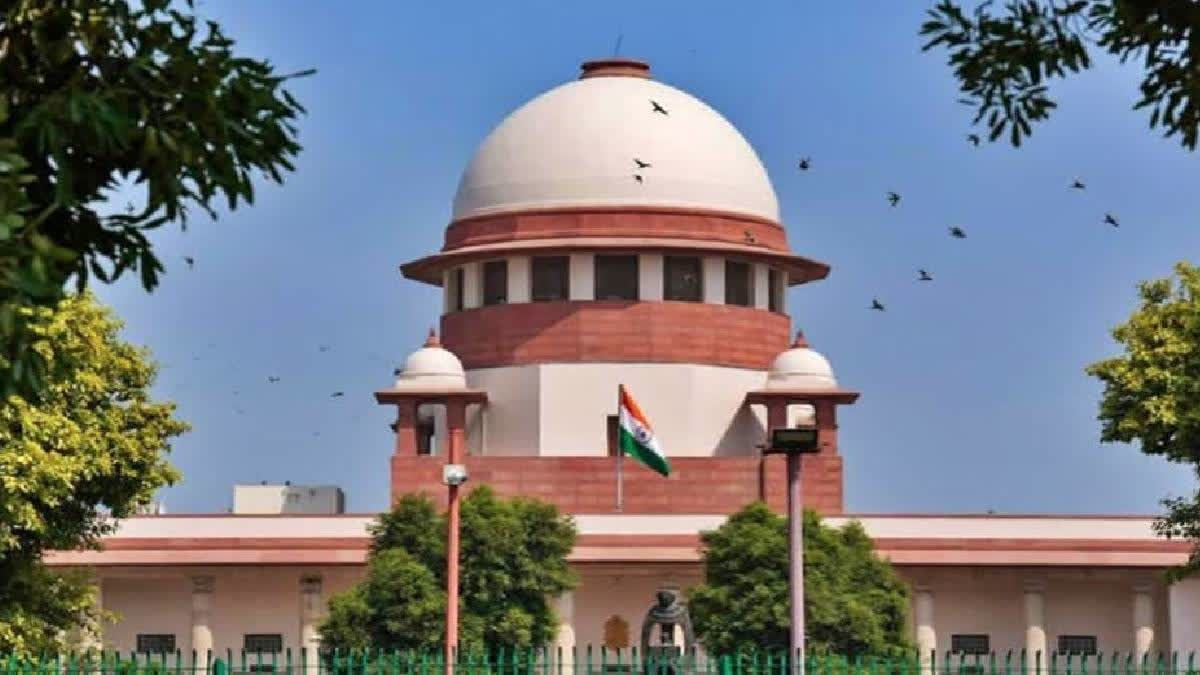New Delhi: The Supreme Court has said the stress of long trials on accused persons, who remain innocent until proven guilty, can also be significant: loss of job or accommodation, damage to personal relationships, the financial burden of legal fees, and also there is no financial compensation for lengthy pretrial incarceration.
The top court stressed that if an accused person is found not guilty, he may have likely endured many months of being stigmatised and perhaps even ostracised in their community, while granting bail to Tapas Kumar Palit, arrested on March 24, 2020, under the Unlawful Activities Prevention Act (UAPA), in Chhattisgarh for carrying Naxalite materials.
Emphasising inordinate delay in trials, which results in incarceration, a bench comprising Justices J B Pardiwala and R. Mahadevan said: “We would say that delays are bad for the accused and extremely bad for the victims, for Indian society and for the credibility of our justice system, which is valued".
The bench, in a judgment delivered on Friday, said judges’ are the masters of their courtrooms and the Criminal Procedure Code provides many tools for the judges to use in order to ensure that cases proceed efficiently.
The bench said it may sound as the court is laying some guidelines, but the time has come to consider this issue of delay and bail in its true and proper perspective. The bench said if an accused is to get a final verdict after incarceration of six to seven years in jail as an undertrial prisoner, then, definitely, it could be said that his right to have a speedy trial under Article 21 of the Constitution has been infringed.
The bench said the stress of long trials on accused persons – who remain innocent until proven guilty – can also be significant. It emphasised that the accused persons are also not financially compensated for what might be a lengthy period of pretrial incarceration.
The bench said the accused may also have lost a job or accommodation, experienced damage to personal relationships while incarcerated, and spent a considerable amount of money on legal fees. "If an accused person is found not guilty, they have likely endured many months of being stigmatised and perhaps even ostracised in their community and will have to rebuild their lives with their own resources," said the bench.
The top court stressed the need for the trial courts and public prosecutors to ensure that a long list of witnesses does not affect the right to speedy trial. The bench made these observations while setting aside an order passed by the High Court of Chhattisgarh at Bilaspur, on February 2, 2024, declining to release Palit on bail.
The top court rebuffed the list of 100 witnesses sought to be examined by the prosecution and added that no useful purpose would be served if 10 witnesses were examined to establish one particular fact.
"It is expected of the public prosecutor to wisely exercise his discretion in so far as examination of the witnesses is concerned. Where the number of witnesses is large, it is not, in our opinion, necessary that everyone should be produced," said the bench. The bench made it clear, regarding the present case, that it was not undermining the seriousness of the crime that has been alleged.
"However, many times we have made ourselves very clear that howsoever serious a crime may be the accused has a fundamental right of speedy trial as enshrined in Article 21 of the Constitution," said the apex court.
Releasing the petitioner on bail, the bench said it is not left with no other option as he has been in jail for five years and the state counsel has no idea as to how long it would take to complete the trial in view of 100 witnesses sought to be examined by the prosecution. "In such circumstances, we are left with no other option but to order the release of the appellant on bail. We do not undermine the seriousness of the crime that has been alleged," said the bench.
Releasing the petitioner on bail, the bench said he would not enter into the revenue limits of district Kanker, Chhattisgarh. "He shall appear online on each date of the hearing before the trial. It is only in the last when his further statement under Section 313 of the Cr.P.C. is to be recorded, he shall personally remain present before the Trial Court. For this limited purpose, he shall enter into district Kanker," said the bench.
The top court said if the appellant commits a breach of the condition in any form as imposed by it, the bail shall stand automatically cancelled.



